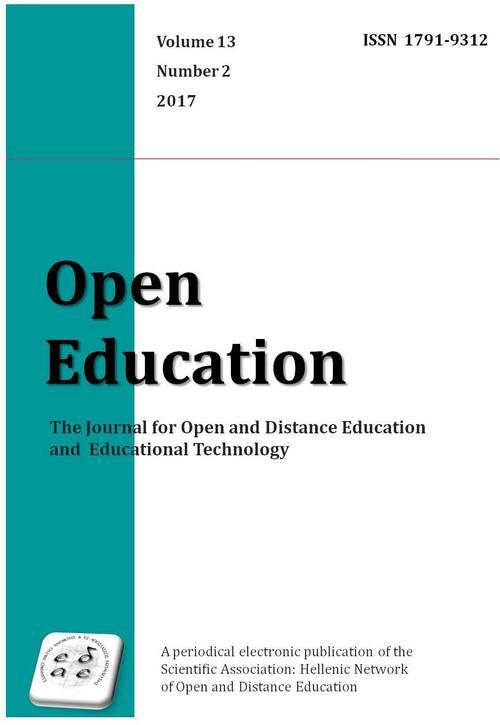ECONOMIC EFFICIENCY OF LIFELONG LEARNING: The SCS in Greece and their exploitation.

Abstract
The economic efficiency of lifelong learning is studied in the present paper in order to estimate then if the concerned educational structures are "efficient" or not. It is discussed the concept of investment in education, while this investment and its efficiency is tested. Special education relations and economic efficiency for the student will be taken into account in establishing the framework of empirical research. Specifically, the effect of the investment in education, initially through the theory of human capital is investigated. Moreover, it is demonstrated that the personal, educational and professional development of the individual leads to more effective achievement of objectives, better organization and management of working groups, personal schedules and increased efficiency and competitiveness. Furthermore, for the calculation of the investment in education is needed to study the efficiency of investment in education. Moreover, a key-tool for the study and analysis of cost efficiency is the method of cost - benefit that presupposes the estimated benefits and costs of investing in education. Finally, it is emphasized that the calculation of the efficiency of the training takes place in a marginal basis with the help of methods of consideration: the full method, the short method and the income function.
Article Details
- How to Cite
-
Τσάρπα Ι. Χ. (2017). ECONOMIC EFFICIENCY OF LIFELONG LEARNING: The SCS in Greece and their exploitation. Open Education: The Journal for Open and Distance Education and Educational Technology, 13(2), 35–45. https://doi.org/10.12681/jode.13806
- Issue
- Vol. 13 No. 2 (2017)
- Section
- Section 1
Copyright Notice
Authors who publish with this journal agree to the following terms:
Authors retain copyright and grant the journal right of first publication with the work simultaneously licensed under a Creative Commons Attribution Non-Commercial License that allows others to share the work with an acknowledgement of the work's authorship and initial publication in this journal.
Authors are able to enter into separate, additional contractual arrangements for the non-exclusive distribution of the journal's published version of the work (e.g. post it to an institutional repository or publish it in a book), with an acknowledgement of its initial publication in this journal.
Authors are permitted and encouraged to post their work online (preferably in institutional repositories or on their website) prior to and during the submission process, as it can lead to productive exchanges, as well as earlier and greater citation of published work.


